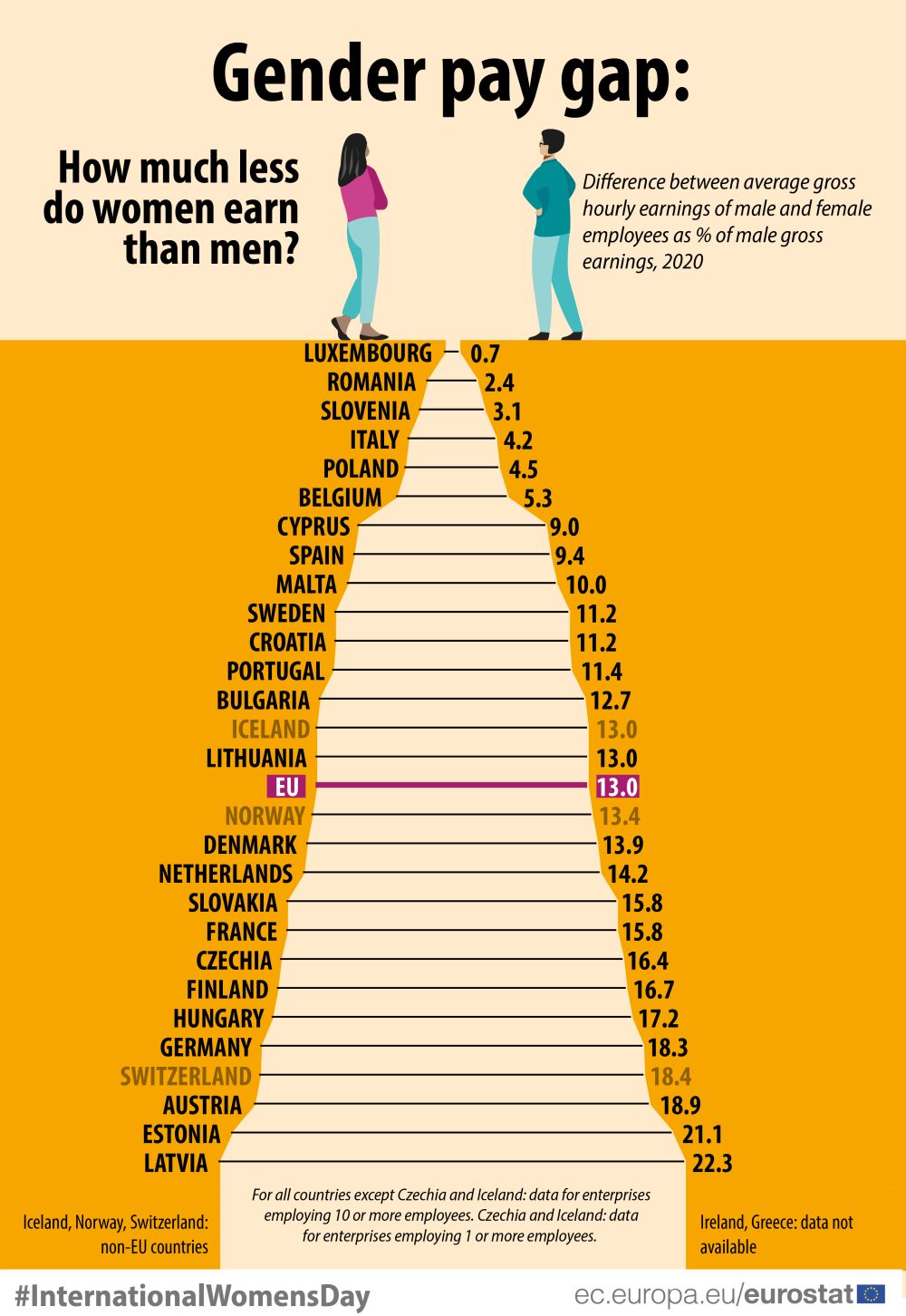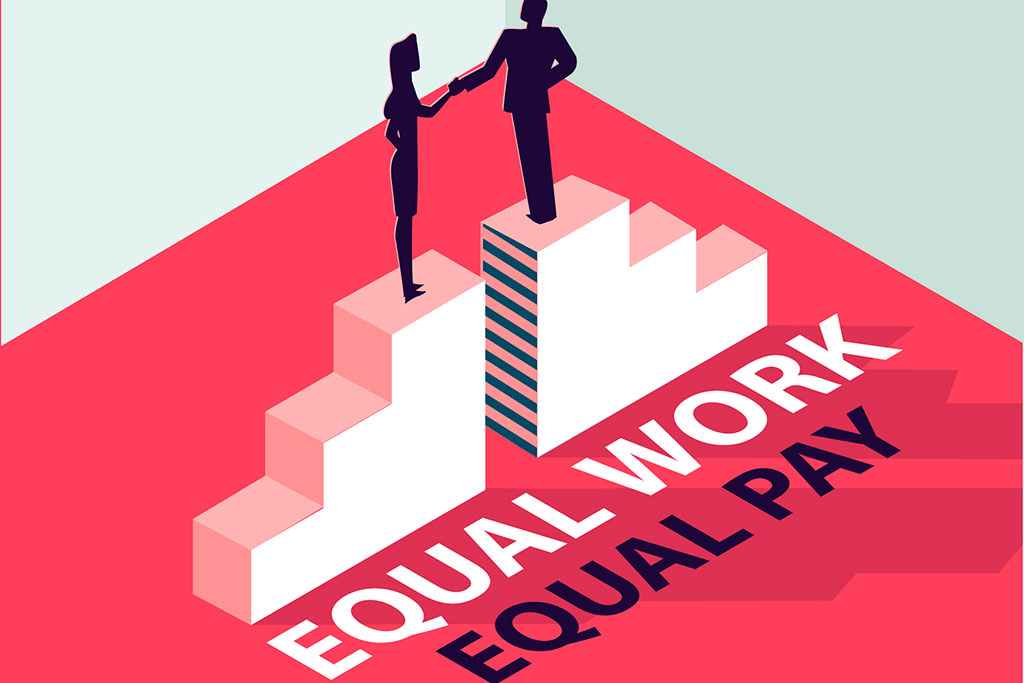By Anna Tsekani,
One of the most tangible problems that several European countries face today and need to address is the inequalities between men and women. Inequalities are, since time immemorial, a phenomenon rooted and internal integrated with many sectors, countries and states.
The Greek community is not an exception. In the wake of the economic crisis and the substantial collapse of the national economy and the social cohesion that Greece has faced, the labour sector is largely influenced, many people are unemployed and at the same time, the employed ones are facing difficulties with regard to the gender pay gap. Greece performs the poorest in the EU7 for gender equality, according to the European Institute for Gender Equality. Taking into consideration that Greece has a gender pay gap of 12.5% which puts it 9th in the European Union, which is even smaller than the EU average of 16%.
The gender pay gap is a problem that concerns all European countries at different scales. On top of that, Greece has the largest share of companies that do not include anti-sexual harassment policies, with 56% of Greek companies not publishing this policy, compared to 52% of European companies that do not publish harassment policies that condemn sexual harassment in the workplace. Meantime, inequalities are internally correlated with the labour market. Women still remain underrepresented in the labour market and as a matter of fact, there is a gender employment gap of 11.3%, since 66.8% of women are currently in employment, while men’s employment stands at 78.1 %.

If we had the chance to bring on the big screen all the problems and responsibilities that women face in the public and private sector, someone can easily recognise that it still rests largely on women’s backs.
To date, women’s representation is definitely alarming. Not only women’s representation in the majority of companies is restricted, but at the same time, female representation on company boards could be significantly increased in order to achieve gender balance (between 40% and 60% of each gender). But the most interesting part is that this is mainly not due to the fact that women are unqualified since women today are well educated and qualified. Often due to their responsibilities as parents or careers, women are not selected for several working positions or on company boards. Inequalities are visible in the labour market also with regard to maternity and paternity. As far as the Greek legislation is concerned, guarantees employees 17 weeks of fully paid maternity leave, while paternity leave is only two days.
The gender pay gap is still a reality that many people face today in the labour market since women today earn less money per hour than men. Specifically, the gender pay gap in the EU stands at 14.1%, a fact that has barely changed over the years. This is mainly due to the fact that women more often interrupt their careers or shift their working schedules for maternity matters. The gender employment gap stood at 11.7% in 2019, with 67.3% of women across the EU being employed, compared to 79% of men. In parallel, Greece shares one of the last seats among the European countries with Poland, Cyprus, and Slovenia.

Taking into consideration that only 12% of women in Greece belong to the board level in the labour market, it is of urgent need for Greek companies to essentially increase female representation, not only in the “traditional” working positions but also on company boards in order to achieve gender balance. Women also tend to be underrepresented in political and economic decision-making positions, since top jobs are largely occupied by men. According to data in 2018, women accounted for 6.7% of board chairs and 6.5% of CEOs.
It is also crucial to bring on the big screen the gender pay information of the companies since the lack of information and the incomplete and unrecorded data in this sector can cause multiply obstacles and is largely leading to the limited effectiveness and sift in the labour sector. At the same time, the utilisation of the gender pay gap can, in order to have a strategy, address any pay gaps identified and reveal inequalities both in the highest and lowest positions. On top of that, the country has not introduced any mandatory gender quotas for boards of public companies or other legal measures for gender balance in companies.
The aforementioned changes can inevitably shift the priorities, the structure and the evolution of the labour market while respecting people’s dignity and meritocracy.
References
- Gender Equality in Spain, Italy & Greece, equileap.com, Available here
- Gender pay gap statistics, ec.europa.eu, Available here
- The gender pay gap situation in the EU, es.europa.eu, Available here
- Women’s situation in the labour market, ec.europa.eu, Available here




